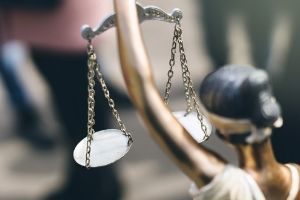11th Circuit Clarifies What Legal Claims Belong To Receivers vs. Defrauded Investors In Ponzi Scheme Receiverships
 In June 2020, the U.S. Court of Appeals for the Eleventh Circuit issued an opinion in the case Isaiah v. JPMorgan Chase Bank, N.A. This landmark decision narrowly defines which claims can be brought by a court-appointed receiver for entities that perpetrated a Ponzi scheme, leaving a broad category of claims to the investor-victims to be litigated either individually or on a class action basis.
In June 2020, the U.S. Court of Appeals for the Eleventh Circuit issued an opinion in the case Isaiah v. JPMorgan Chase Bank, N.A. This landmark decision narrowly defines which claims can be brought by a court-appointed receiver for entities that perpetrated a Ponzi scheme, leaving a broad category of claims to the investor-victims to be litigated either individually or on a class action basis.
Ponzi Scheme Background
This case arose out of a Ponzi scheme in which two fraudsters used business entities they controlled to bilk millions of dollars from more than 2,000 investors. According to the 11th Circuit opinion, “the Ponzi schemers solicited investors by promising astronomical returns on investments supposedly involving the trade of Venezuelan and U.S. currency.” Unfortunately, in true Ponzi scheme fashion, the perpetrators were paying so-called “distributions” to existing investors using money continuously being raised from new investors.
The scheme ultimately was uncovered and fell apart, and a court-appointed receiver was put in place to stand in the shoes of the fraudulent entities to protect the creditor’s (the victim’s) rights. When a Ponzi scheme is uncovered, a court-appointed receiver is often put in place to unravel the financial misconduct committed by the fraudsters.
Among other things, Isaiah, the court-appointed receiver, brought claims for damages against JPMorgan Chase Bank for aiding and abetting the Ponzi schemer’s breach of fiduciary duties, conversion of funds, and fraud. In analyzing whether Isaiah’s claims should be dismissed, the 11th Circuit addressed head-on whether Isaiah, the court-appointed receiver for the Ponzi scheme entities, was the appropriate party to bring a claim for damages suffered by investors as a result of JPMorgan Chase Bank’s alleged wrongdoing. The Court decided that Isaiah was not, setting a significant legal precedent for future claims arising out of Ponzi schemes.
The Court’s Decision On Claims That Can Be Brought By Receiver
The 11th Circuit’s narrow interpretation of what claims can be brought by a receiver rested on the principle that “a receiver obtains only the rights of action and remedies that were possession by the person or corporation in receivership.” Conversely, the court clarified that “the receiver is not the class representative for creditors and cannot pursue claims owned directly by the creditors.”
The key to this ruling was the precise role a receiver plays. As noted herein, a receiver “stands in the shoes” of the entity or entities that were a fraudster’s primary vehicle for executing a Ponzi scheme. The 11th Circuit noted that those entities’ “primary existence was as a perpetrator of the Ponzi scheme . . .” Because of that, even after a receiver has been appointed, the entities “cannot be said to have suffered injury from the scheme it perpetrated.”
Because the Court could not separate the misconduct of the Ponzi schemers from the misconduct of the companies, the Court decided that any potential claims against JPMorgan Chase Bank, or likely against any third party that aided and abetted the Ponzi scheme, belonged to the investors.
Silver Law Group Represents Victims of Ponzi Schemes
The 11th Circuit’s decision in Isaiah v. JPMorgan Chase Bank, N.A. solidifies the legal principle that claims against banks, law firms, accountants, auditors, and others who aid and abet Ponzi schemes belong to the victims, not the receiver. These claims often take the form of class actions.
Silver Law Group routinely advocates for investors who are the victims of Ponzi schemes. Silver Law Group represents investors nationwide in these investment fraud-related matters, including class action litigation against companies participated the fraud. Our SEC receivership attorneys routinely work as counsel to the SEC receiver or cooperatively with the SEC receiver’s counsel to help maximize the recovery for investors. If you are a victim of a Ponzi scheme or some other form of stockbroker misconduct or investment fraud, contact Silver Law Group today at (800) 975-4345 or email ssilver@silverlaw.com for a confidential consultation. We work on a contingency fee basis, meaning you won’t pay us any legal fees unless we are successful.
 Securities Arbitration Lawyers Blog
Securities Arbitration Lawyers Blog

